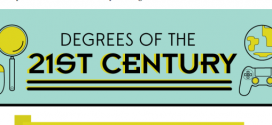Different strokes for different MOOCs.
Thanks to a piece in Venture Beat this week, we learn that the major Massive Open Online Course (MOOC) provider Coursera has begun testing on how to increase engagement with its students. The company is examining its messaging to students to see if, for example, telling them they have an upcoming deadline is more effective than periodic encouragement.
As it turns out, homework reminders seem to spur lower engagement, while giving students praise actually boosts it, according to Coursera co-founder Andrew Ng, who shared the findings at an IBM Research event, according to Venture Beat.
“It sounds natural in hindsight, but we didn’t have this insight ourselves,” said Ng.
Change in Focus
Compare Coursera’s findings to Udacity’s recently documented change in course. Udacity has begun pulling back from hosting its own educational material to instead host established, accredited programs online. Founder Sebastian Thrun told Fast Company this is just one of several changes he’s made to his company’s model after pilot MOOC courses, spurred by abysmal completion rates in the 10 percent range.
“We were on the front pages of newspapers and magazines, and at the same time, I was realizing, we don’t educate people as others wished, or as I wished,” Thurn told Fast Company.
So Thrun has decided to expand Udacity’s focus from solely offering MOOCs to also having an accredited online degree program through Georgia Institute of Technology. The program, offered to computer science students, marks Udacity’s switch from providing course content to hosting the course material.
What’s Missing?
What seems to be the problem? Both MOOC companies are acknowledging issues with student engagement and student completion rates. Both companies have made changes, Coursera to its approach, and Udacity to its model. The MOOC issues parallel an idea from Northeastern College of Professional Studies Dean John LaBrie, who argues that some online educators are missing the most important part of the online class: The education itself.
“What is online education?” he writes in a recent post, “What’s Missing From a Lot of Online Education? The Education.” ”The same thing education has always been: great content, strong faculty, solid teaching methods and a deliberate and well-conceived learning plan. That may not sound as sexy as asking Matt Damon to teach Thévenin’s theorem, but that’s what it takes to help students really learn.”
What do you think is the missing ingredient from the MOOC formula? Which company’s approach do you think will have the most profound effect on student learning? Share your thoughts.




